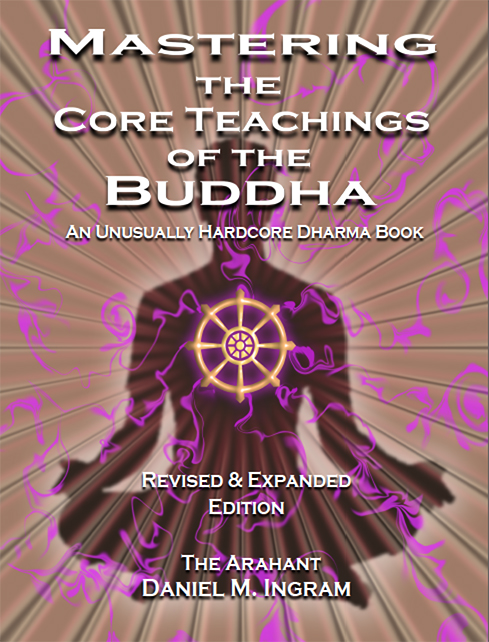60. Paradigm Fluency
← 59. Are the Powers Real? | 61. Crazy? →
One of the most essential concepts related to thinking about the powers (and so many other things) is the ability to have a general sense of which paradigmatic framework you are using—and recognize its pros and cons—so that you can, for each changing experience and situation, determine the most useful framework(s) to bring to bear to meet your various needs and goals. It is often useful to shift which framework you are using in order to be successful at various endeavors and even to use frameworks in close temporal proximity to each other which are apparently contradictory. For those who are into the powers and want to do a little fun reading, I recommend checking out the relatively new system of chaos magick, specifically the classic short book Condensed Chaos, by Phil Hine, which is a wonderful treatment of how to embrace a pragmatic fluidity of perspective.
For example, scientific materialism is a common framework that people use when dealing with various scientific problems. I personally use a modified version of this framework all the time in the emergency department. In medicine, the sciences of biology, physics, and chemistry are some of the essential foundations upon which we base diagnosis and treatment. However, it is certainly not the only useful framework for working in that environment. Biology, physics, and chemistry are clunky frameworks when dealing with much of what happens in human minds and hearts, as well as in interpersonal relationships, families, and communities.
Further, the belief structures of everyone involved, including treatment providers, play a large role in making or breaking an encounter with a patient and their family. The world of beliefs and human interactions, as well as their effects on health outcomes, are not easy to quantify in terms of biology, physics, and chemistry. Try talking about the meaning of a dream you had or some intuition strictly in terms of biology, chemistry, and physics and see how that goes. Try using only those frameworks next time you go out on a romantic dinner or hang out with good friends; it is not going to be the loads of fun that strict scientific materialists would have you believe. Add in engineering and mathematics and you still aren’t going to be having much of a party. The Star Trek character Spock is funny for a reason, but only to a point.
These same problems that arise from clinging to a rigid materialist paradigm apply to dealing with the experiences of powers. Further, we all have mythic and magickal aspects to our thinking, and pretending otherwise just creates shadow sides. Despite what some of you might think of yourselves, nobody is purely “rational” since, were people rational, scientific materialism would rapidly be seen as limited and irrational by scientific materialists themselves, for example. This rarely happens, which is too bad. Archetypes and symbols play a significant role in our lives whether we admit it or not. Symbols can have huge conscious and subconscious meanings and effects—advertisers know this all too well.
We sense things at many levels of which we are barely conscious, and process things in ways we can only guess at. Intuition, gut feelings, and snap judgments are a huge part of our everyday decision-making. Very complex emotional energies that we may be unskilled at recognizing and accepting can influence countless decisions. Shadow sides abound. As anyone who does mental health work or deep introspection will tell you, it is a strange and murky world within us, and that strange and murky world can have lots of real-world implications for our psychological and physical health, as well as impact our functioning in jobs, relationships, and the like. Looking for some fun reading about how our internal world can sculpt our physical reality? Check out the mainstream scientific literature on medical conditions like conversion disorder, stigmata, and fictitious pregnancy. Even more fun, check out The Intention Experiment, by Lynne McTaggart, The End of Materialism, by Charles Tart, and The Sense of Being Stared At, by Rupert Sheldrake: all good times!
Sometimes we can really benefit from being willing to jump into a paradigm that allows us to work on this totally different level, a level whose causality may seem mysterious but is yet extremely and deeply human. Strict, dogmatic, hyper-rational, rigidly idealized materialism is ill-suited to much of that work, and can seriously impair our ability to be with what is actually going on. It is simply too narrow in its bandwidth, and I am being polite here.
What I really mean to say is that imposing the taboos that come out of scientific materialism onto phenomena as amazing, fascinating, compelling, profound, useful, revealing, awesome, and potentially healing as the powers is one of the greater paradigmatic crimes of the last thousand years. By failing to be willing to sometimes adopt a way of working with our hearts, minds, and bodies that embraces or at least acknowledges the world of embarrassing emotions, deep desires, irrational thought patterns, uncomfortable associations, archetypal energies, and all the oddities of this human mind and body in its full and bizarre glory, we may miss many opportunities for insight, healing, growth, and empowerment. In short, practically speaking, there is much to be said for being able to adopt frameworks for working with much of that when it makes sense to do so, and magickal frameworks are some of the frameworks that can function well in those contexts.
Remember the example of the strong practitioner who rose through the formless realms and came out and then traveled out-of-body and gained insights into her big issue as the thing played out in mythic form in the chapter “From Content to Insight”? This is the sort of insight that can be helpful and healing, and which we may have a harder time accessing if we don’t make room for paradigms that might initially seem odd or even crazy. Just because we may go there at times doesn’t mean we live there all the time, and the real skill is discerning which paradigm would work optimally in which situation.
For instance, you might have just come back from a retreat where you were playing around with visualization abilities, and a few days later you see a troop of radiant angels floating through the walls and into your living room where you are entertaining guests. This was your actual, causal experience, questions of “reality” aside. Whether you choose to ignore the angels, give them lots of attention, mention them to your guests, get down on your knees and begin praying, or run screaming out the door and check yourself into a mental health facility will have different implications for your actual life. These implications should be carefully considered when conducting yourself in the face of such experiences. Obviously, in nearly all cases, not reacting in any way that is going to freak out those around you is recommended, though mentioning that you saw such things to someone who can skillfully handle that information is often a good idea. On a side note, if you have learned to see angels, you will probably run into devils soon enough.

